-
Join the
Digital Meets Culture
Open Newsroom! If you have interesting news and events to point out in the field of digital cultural heritage, we are waiting for your contribution.
If you have interesting news and events to point out in the field of digital cultural heritage, we are waiting for your contribution.
-
Free text
-
-
Upcoming events
-

Step into the world of history and heritage through stunning 3D collections that bring the past to life. From pre-cinema artifacts in Girona to everyday objects and cultural emblems from the ancient oppidum of Bibracte in Burgundy, these collections … Continue reading →
 The deadline for submitting photographic projects for the AIPAI PHOTO CONTEST has been extended
The deadline for submitting photographic projects for the AIPAI PHOTO CONTEST has been extendedThe deadline for submitting photographic projects for the 3rd edition of the AIPAI PHOTO CONTEST, the photography contest organized by the Italian Association for Industrial Archaeological Heritage ETS, has been extended to October 31. The contest is organized in collaboration with DICEA … Continue reading →
 Brussels, November 13th and 14th, 2024
Brussels, November 13th and 14th, 2024On November 13th and 14th, OpenLab.brussels is hosting the international conference “Creating Knowledge through Participatory Research” in Brussels. The OpenLab.brussels is a joint venture of ULB-VUB dedicated to participatory research. It aims to mobilize our academic community and public or private stakeholders … Continue reading →
Area: digital heritage

Succeed in digitisation. Spreading excellence is the name of the Succeed’s final conference to be held on November 28th, 2014 at Bibliothèque nationale de France (BnF), in which the final results of the project will be presented. Continue reading
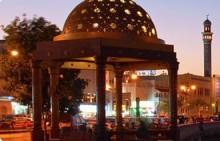
Under the Patronage of His Highness Sayyid Taimur Bin As’ad Al Said, the 4th International Platform on Integrating Arab e-Infrastructure in a Global Environment, e-AGE 2014, was hosted by The Research Council (TRC) of Oman. In e-AGE 2014 the main theme was “Intercontinental Connectivity of the Pan Arab Network”.
Continue reading
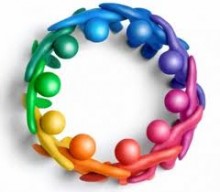
A panel workshop to disseminate the latest achievements and to foster collaboration in the digital cultural heritage sector is organized by Promoter Srl in the framework of the important congress Euromed 2014. EU projects, organizations and professional operating in this field are invited to participate in the discussion. Continue reading
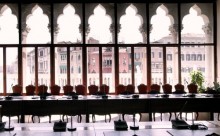
A rich program of speakers and creative sessions to build bridges between Cultural Institutions and Creative Industry. Digital Cultural Content Re-imagined: New Avenues for the Economy and Society. The Opening Conference of Europeana Space is a great event held in Venice on 16-17 … Continue reading
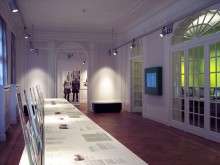
On July 1 2014, the Federal Chancellor of Germany Angela Merkel opened the new permanent exhibition “Resistance against National Socialism” in the German Resistance Memorial Center in Berlin. The entire social breadth and ideological diversity of the fight against the National Socialist dictatorship is are documented in 18 topic areas. The barrier-free permanent exhibition is accompanied by a wide range of media and materials, along with an audio guide in seven languages and a video guide in German Sign Language. Continue reading
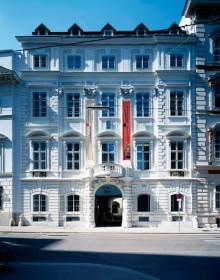
The course is the second iteration of what will become a yearly event to be presented from 2015 by the Virtual Centre of Excellence developed out of APARSEN. It will bring together those at the forefront of digital preservation research and training, and it is intended for managers and staff already working in digital preservation. Continue reading
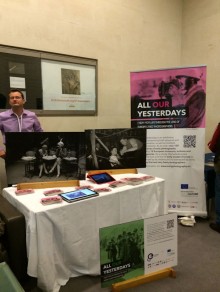
Organized by the Royal Anthropological Institute and the British Museum, this gathering of professionals from either the artistic/creative field or the academic world, offered the opportunity to anyone active at the crossroads of both disciplines to showcase an oeuvre or project to the conference attendants. In te Europeana Photography booth, the accent was on the project’s future activities: the upcoming Belgian production of the expo (Leuven, 30 January – 30 March 2015), as well as the upcoming future platform that is springing out of the project after the end of the EC funding period. Continue reading

Registration is now open for the exciting two day digital preservation conference ‘Investing in Opportunity: Policy Practice and Planning for a Sustainable Digital Future’ which will take place at the Wellcome Trust in London on 17th – 18th November 2014. Continue reading

Welcome to this special edition of the EUDAT News Bulletin, dedicated to the 3rd EUDAT Conference, which takes place at De Meervaart Conference Centre, Amsterdam, on 24 and 25 September 2014. Continue reading
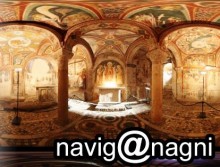
The project “Navig@nagni” was born in 2009 to let the world know the artistic trasures of the “City of Popes” through the web. This has been by scanning the major historical and artistic sites with a laser scanner which, in addition to a perfect 3D modeling, has allowed a scan hundreds of equirectangular pictures, using a special software developed by Massimo Iachetta, head of the ICT department of the City of Anagni. Continue reading























